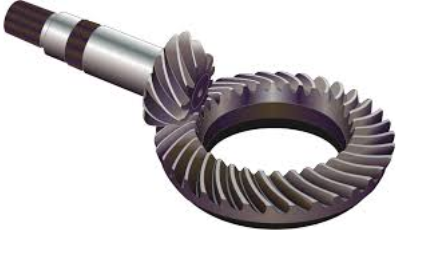College Engineering Aptitude Test Notes
1/32
Earn XP
Description and Tags
Robotics, Subsystems, and Gear ratio Terms
Name | Mastery | Learn | Test | Matching | Spaced |
|---|
No study sessions yet.
33 Terms
What Is a Gear Ratio?
The amount of Torque Vs. the Amount of Speed
Torque
Measurements of force that causes and object to rotate around a point (lb/ft)
Speed
The distance traveled per unit of time
Parts of a gear train
Driver: The gear connected to a motor
Idler: The gear that spins in the inverse direction of the driver and does not affect the final gear ratio
Driven Gear: causes either no change, a reduction, or an overdrive
Gear ratio formula
(Teeth of Driver) / (Teeth of driven)
Reduction
When the input driver is smaller (has less teeth than the output driver) and decreases the speed
Overdrive
When the input driver is larger (has more teeth) than the driven gear and increases the speed (Rpm)
How to calculate rpm based on gear ratio
Ratio = 24/12 = 2:1 = 2
Input Speed 1500 RPMs
Output Speed = 1500 x 2 = 3000 RPMs
(If 12:24 RPM would be 750)
How many Robotics Subsystem are there?
6
Structure:
Any physical part of the robot: All metal, fasteners, and structure/mechanical plastic parts
Motion:
Anything that makes the robot move: Motors, Servos, Gears, Chain and Sprockets, Tank Treads, etc.
Sprocket and gear used in Bike pedals: Sprocket is the smaller driven gear with teath
Power:
Batteries, Wires, Pneumatics, chargers
Sensors:
Anything that takes input from the environment
EX: Bumpter, Limit Switches, Ultrasonic, Encoders, Potentiometers, Vision
Control
Anything that controls/ communicates with the robot
Ex: joystick, Radio, Cables
Logic:
Brain and Programming Part of the robot
EX: RoboRio, microcontroller, PWN cables, and Programming Kits
Mechanical advantage
The process of using machines to overcome work (Force)
Rotational Speed
The frequency of ration of an object around an axis (RPM)
Acceleration
the rate of change of velocity per unit of time. Changes in both speed and direction over a distance *** includes velocity a bit
Force
The push or pull on an object with mass causes it to change its velocity.
Work
the transfer of energy by a force acting on an object as it is displaced.
EX: Carrying a backpack (Force is a must when work is done)
Power
the amount of energy transferred or converted per unit time.
Voltage
electrical potential difference between two points in a circuit, driving the flow of electric charge, measured in volts.
EX: in a battery, the voltage is the difference in potential energy between the positive and negative terminals, and this difference drives the flow of electrons through a connected circuit.
Free Speed
The max RPM that a motor could spin without any interruptions
Free Current
The current (Electrical Output) generated by free speed
Stall Torque
The limit of force a motor can output to lift/Rotate an object
Stall Current
How much current (Electrical output) is generated when the motor stalls
Current Limit
limit put of the motor to not burn out (Overheat) after stall torque is reached — built into most motors
Belt Drive
Two wheels attached to a pully used to move a belt over a distance
Rack and Pinion
Takes rotational movement from a gear and turns it into a liner (Forward and Back) motion
Lead Screw
As the screw turns (rotational) is moves along the lead to create lateral or linear motion.
EX: Sliding up and down a fireman’s pole while spinning.
Worm and Wheel
As the worm wheel (Gear rotates), it causes a rotational spin on the worm (Bar) that is perpendicular to the wheels rotation
Cam and Follower
As the follower (wheel) rolls along the side of the cam (Wedge shape) it allows a movement up and down.
EX: Seen in pistons and car engines

Bevel Gears
Gears 90 degrees to ectotherm and the teeth at 45 degrees to each other and creates an orbiting motion
Seen at the bottom of cars: Rear Differential